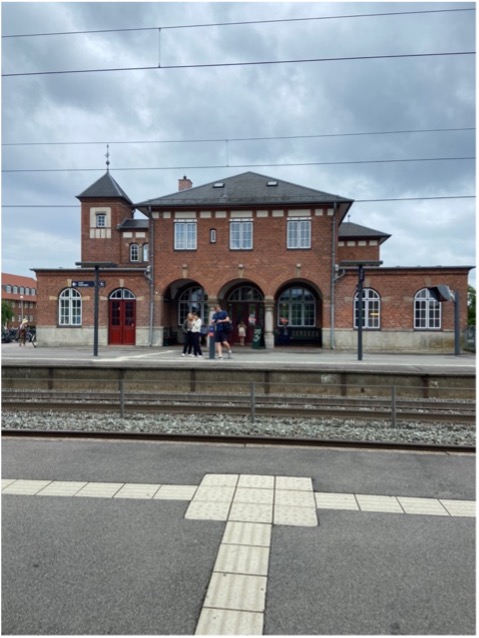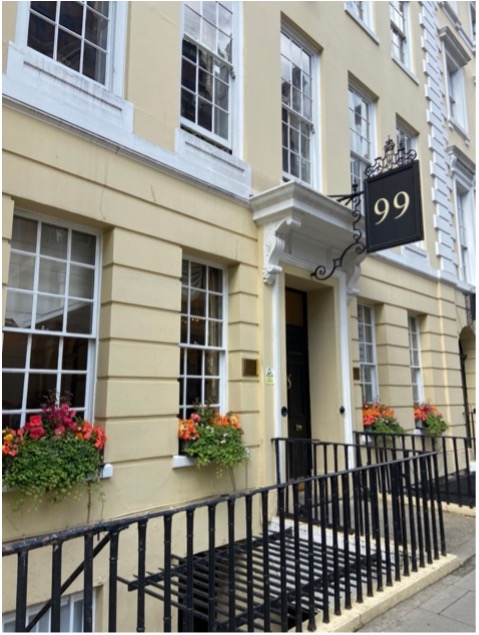To Fly or not to Fly?
By Montse Zeron
With July coming to an end and the fall semester rapidly approaching, I’m getting excited with the prospect of sharing my research project with the FSU community. I’ve had a very eventful summer to say the least. July consisted of lots of travel, where I conducted the two oral history interviews planned for the European component of my research project.

Train station in Humlebæk, Denmarl
My first interview in Europe took me to the Danish countryside, where I interviewed a former senior ESA scientist involved with the Hubble and Webb Space Telescopes. While I was there, I took the time to visit Copenhagen (including Hamlet’s castle) and appreciate the beautiful sights!

Telescope at Frederiksborg Castle, Denmark
My second European interview was in Cambridge, England, where I interview an astrophysicist at the Kavli Institute for Cosmology from the University of Cambridge. During my time in England, I was also able to visit a close family friend and appreciate some of my favorite spots in London.

Institute of Astronomy, University of Cambridge
Even though I had to deal with multiple travel delays due to the global IT outage in mid-July, these trips have been among my favorites – both interviews were very insightful and will be a very important component for the development of my thesis.

FSU London Study Centre, England
Now that the data collection portion of my project is almost over, I’m ready to start analyzing what I’ve compiled and put everything together into my honors thesis. I’ve never presented at an event like the President’s Showcase; that will definitely be a nerve-wracking experience, but I’m excited for it nonetheless!
Through this project, I hope to communicate the importance of diplomacy and international cooperation on the success of extremely complex scientific (space) endeavors. By conducting interviews with different scientists involved in the James Webb Space Telescope, I’ve been able to discern the experiences and long-term collaborations that impacted the inception, development, and success of the telescope. I hope to highlight those components and piece them together with my own hypothesis, all of which will help the understanding and key role of diplomacy on the development of space missions.
